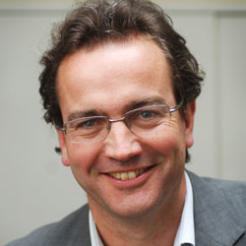Conservative MP Nick Hurd will be announced today as the voluntary sector’s new minister, Civil Society has learned.
After a year and a half as shadow charities minister, Hurd has now secured the role within the new coalition government.
The son of former Conservative home secretary Douglas Hurd, Nick Hurd was elected to parliament in 2005. He has served on the environment audit committee and in 2006 successfully took through parliament a private members bill, the Sustainable Communities Act.
He succeeded Greg Clark into the shadow charities job in October 2008, at the same time as Labour’s Kevin Brennan took up the ministerial post. His 19-month tenure in the role means he has been directly involved with the sector for longer than many of the Labour third sector ministers were, and so he is well-known among charity leaders.
Hurd is also a trustee of the Hillingdon Partnership Trust, a grouping of businesses in the Hillingdon area that creates partnerships between local businesses and charities.
No more ‘initiative-itis’
Speaking at a sector event last summer, Hurd said the Conservatives, if elected, were determined to get away from the “initiative-itis” that had “bedevilled” the Labour government. However, he gave assurances then that his party wouldn’t immediately scrap organisations like volunteering body v, and Capacitybuilders and Futurebuilders.
“The first principle is to do no harm,” he told an audience convened by nfpSynergy. “Governments of all colours have a history of ripping up what the other lot have done. We wouldn’t have created Capacitybuilders or Futurebuilders or v ourselves but now they are out there we need to spend a bit of time looking at what they do and then reach a sound conclusion as to whether they should still be there.”
He also said there was value in the sector’s “infrastructure layer”, particularly for advocacy, but criticised it as a “complete muddle”, with too many organisations trying to do the same thing.
He said the recession had given the sector new importance. “If we just respond economically we will come out of this recession with an environment of even more fragmented communities. The third sector is a key partner in creating a cohesive society.”
And, as the political priority was to restore the public finances, the sector’s reputation for innovation and a “better way of doing things” – but not, he hastened to add, doing things more cheaply – had become crucial.
Independence from government
He was keen to restore the sector’s independence from government.
“We think government interference can damage the sector. And we have some concerns about the growing dependence of the sector on the state. The government is far and away the biggest source of income yet only half get any money from government at all. This trend of concentration of state funding is not particularly healthy.”
The Conservatives had also pledged to restore the independence of the Big Lottery Fund, ensuring it gives grants to the sector only.








